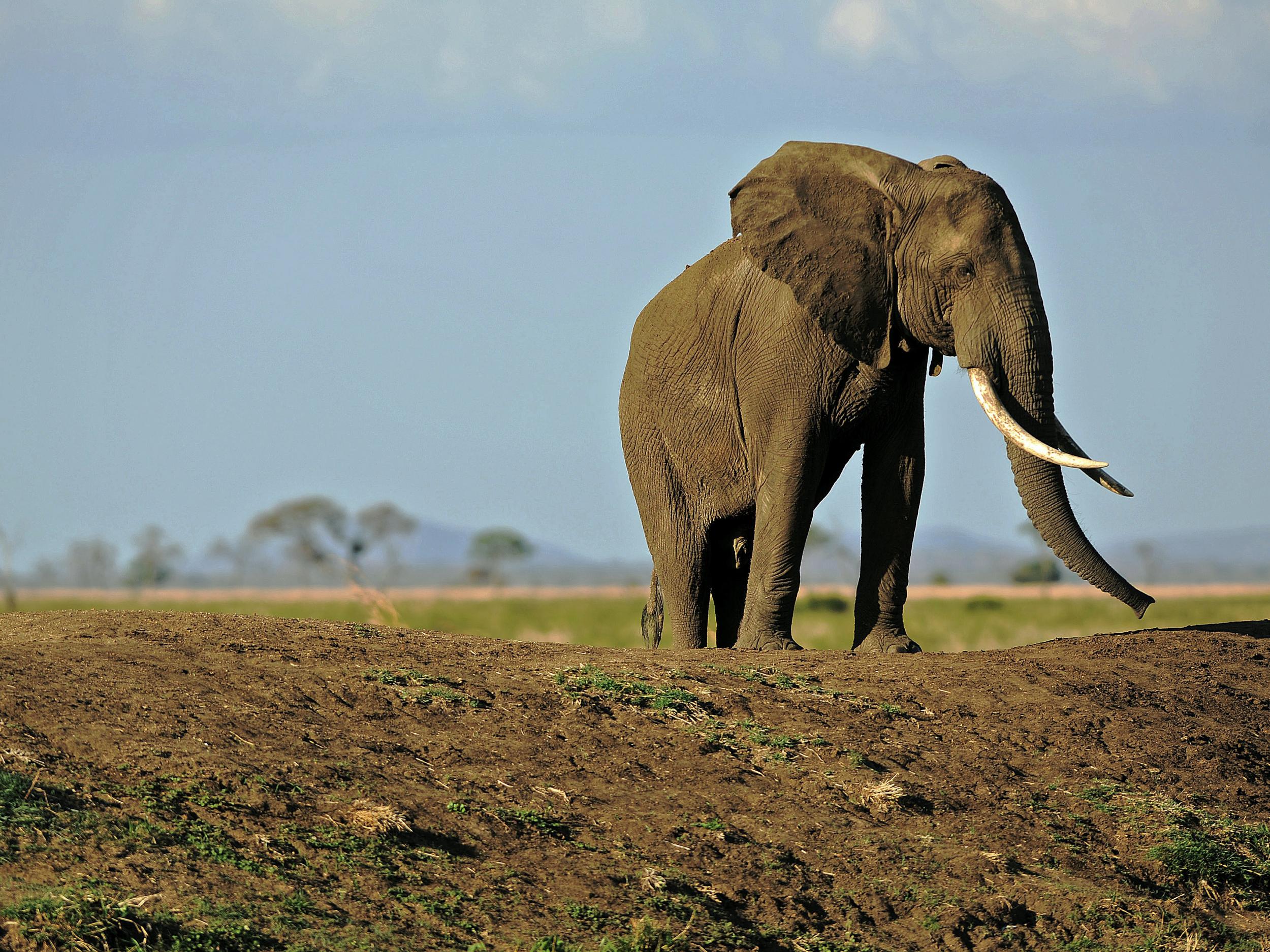Michael Gove’s proposed ban on ivory doesn’t go far enough to protect the elephants of Africa
The antique rogue show must come to an end

Your support helps us to tell the story
From reproductive rights to climate change to Big Tech, The Independent is on the ground when the story is developing. Whether it's investigating the financials of Elon Musk's pro-Trump PAC or producing our latest documentary, 'The A Word', which shines a light on the American women fighting for reproductive rights, we know how important it is to parse out the facts from the messaging.
At such a critical moment in US history, we need reporters on the ground. Your donation allows us to keep sending journalists to speak to both sides of the story.
The Independent is trusted by Americans across the entire political spectrum. And unlike many other quality news outlets, we choose not to lock Americans out of our reporting and analysis with paywalls. We believe quality journalism should be available to everyone, paid for by those who can afford it.
Your support makes all the difference.Today, on the final day of parliamentary business before Christmas, Peers will find out how far the Government is prepared to go to ban the sale of ivory in the face of opposition from an antiques industry that wants to continue to trade “artistic” pieces.
It’s heartbreaking to know that African elephants are still routinely being slaughtered for their tusks. Their numbers have declined by over a third in the last decade and around 20,000 a year are killed to meet the global demand for ivory. Many of these killings are carried out by illegal poachers and it has become big business for criminal gangs, with estimated profits of around £17bn a year. These people are thugs who do not tolerate local communities or conservationists getting in their way.
The cause has not been helped by Donald Trump’s decision to reverse a previous ban and allow big game trophies, including elephant heads and tusks, to be imported into the United States. And there is a real concern that should this trend continue, African elephants will no longer exist in the wild – with sightings reduced to zoos and safari parks. This would be a tragedy for such a magnificent and intelligent animal.
I welcomed the news that Environment Secretary Michael Gove would be announcing a proposed ban in the UK on the sale of ivory. With one of the largest domestic markets, we export more than anyone else to Asia where the largest illegal trade takes place. By helping to close down the latter, we could significantly reduce the demand for new tusks – much of which gets laundered into the fake antique market.
While it is already illegal in the UK to sell worked ivory produced after 1947 unless it has a certificate, anything prior to that date is considered to be antique and has no restriction. These rules however, have been widely flouted with the auctioneers Christies fined last year for trying to sell unworked ivory.
At the same time, many auction houses and traders do not have the skills or training to accurately identify the age of an ivory carving. A recent survey of 72 such houses by Two Million Tusks found 90 per cent were unable to provide satisfactory proof of age for their lots. Distinction by age simply isn’t working – that is why a complete ban on all ivory sales is necessary.
Unfortunately, the Government’s consultation opens up a loophole by suggesting that items of artistic, cultural or historic significance could be exempt from the ban. This option is being vigorously pursued by ivory collectors and dealers, and will be proposed in today’s Lords debate. Conservative Peer Lord Carrington, who has an interest in furniture and clocks, will call for a compromise to enable antique ivory to continue to be sold.
Labour is opposed to this exemption – not least as a large part of the worked ivory in the UK could be described as artistic, and in turn render the ban unworkable. Of course, we understand the need for some small practical exemptions, i.e. items with less than 5 per cent ivory by volume and musical instruments. But the emphasis should be on a simple and clear set of, easy to enforce rules.
Ultimately, our entire relationship with ivory products needs rethinking. As Gove said when he launched the consultation, “ivory should never be seen as a commodity for financial gain or a status symbol.” I only hope the Government will follow the logic of that statement by implementing a complete ban.
Baroness Maggie Jones of Whitchurch is Shadow Defra Minister in the House of Lords
Join our commenting forum
Join thought-provoking conversations, follow other Independent readers and see their replies
Comments